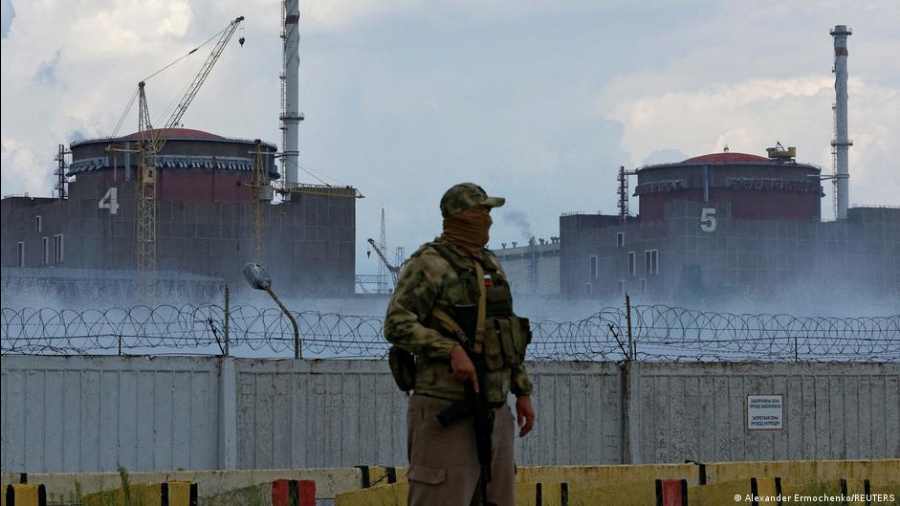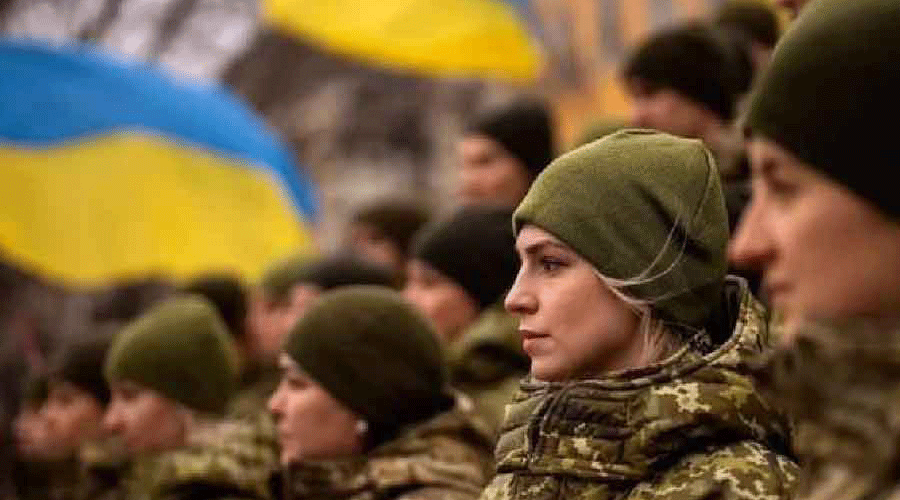The Zaporizhzhia nuclear power plant in Russian-occupied territory in Ukraine has been completly shut down, the Ukrainian nuclear power agency Energoatom announced on Sunday, saying it was "a safety measure."
Energoatom said it had disconnected the sixth unit of the plant from the power grid.
"Preparations are underway for its cooling and transfer to a cold state," it said in a statement.
The operator said it was taking all possible measures to organize an additional supply of diesel fuel for the generators needed to ensure safety at the plant in the absence of an external electricity supply.
For several days, the plant had been using its only remaining reactor in operation to generate the power needed for essential cooling operations after all power lines to the plant from the outside were disconnected as a result of fighting in the area.
Energoatom said that one of the power lines was restored late Saturday, allowing the last reactor to be shut down.
In a statement to Russian news agency Interfax, an adviser to the head of the Russian nuclear body Rosenergoatom confirmed that the final power unit had been shut down and that the plant is currently being switched to a cold state.
The plant has been held by invading Russian troops since March, though it continues to be operated by Ukrainian staff.
A 14-member mission sent by the IAEA last week in its report called for "the immediate establishment of a nuclear safety and security protection zone" around the plant as it faces an "untenable" situation amid frequent shelling that Moscow and Kyiv blame on each other.
Here's a look at some of the other major news stories from Russia's war in Ukraine on September 11.
Russia spreading 'misinformation' on global food insecurity: UK military intelligence
Recent claims by Russian President Vladimir Putin that the overwhelming majority of grain exported from Ukraine under a UN-backed deal was going to EU states are untrue, the UK Ministry of Defence has said in an intelligence update.
Putin claimed on Wednesday, without citing any sources, that only 60,000 metric tons of grain had been exported to developing countries on just two of 87 ships carrying the produce.
The UK ministry quoted UN figures saying that in fact, around 30% has been supplied to low and middle-income countries in Africa, the Middle East and Asia.
"Russia is pursuing a deliberate misinformation strategy as it seeks to deflect blame for food insecurity issues, discredit Ukraine and minimise opposition to its invasion," the ministry said.
The update also reported that Ukrainian forces had recently recaptured a considerable amount of territory in the Kharkiv region. It said several Russian units had "likely" withdrawn from the area but that fighting continued around Kupiansk and Izium.












